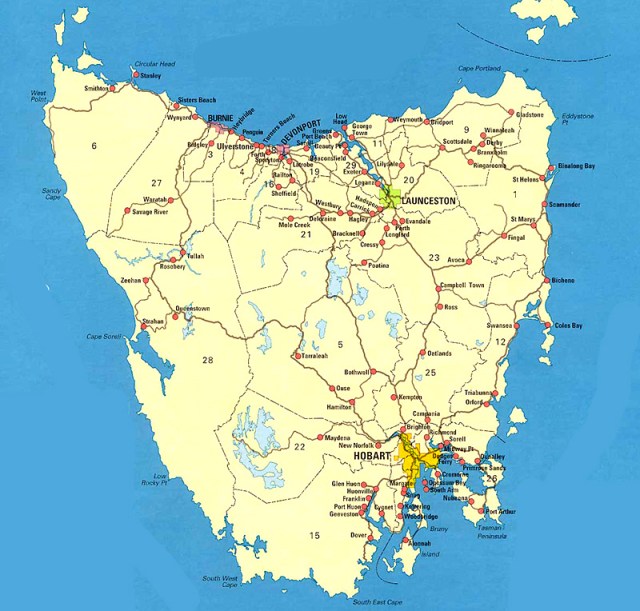
My parents tried to make a happy home for me, and could probably never understand why I always had my heart set on moving out at the earliest possible convenience. Finally, here in ProPrint, I can reveal why.
For years I would come home from school/uni/work and have to listen to them tell me about news that I had already heard, read or (in later years) written myself.
Did you hear, Dan?
Bob Car resigned.
Steve Irwin died.
The Dragons have signed Jamie Soward.
Dubya got re-elected.
The answer was always the same: Yes, I know. Yes, Dad, I know. I know.
My smarty-pants attitude must have been infuriating for them, but I was just as frustrated by their constant inability to grasp the fact that I was getting news up to nine hours before them simply by logging on to the internet. It must have seemed like magic to them: their son was walking in the door every day already aware of everything the six o’clock news was going to report.
I used to think that my parents were the only people in the world who weren’t using the internet for news, but that was before I started working at ProPrint.
As a long-time devotee and (now) practitioner of online news, it’s hard for me to understand how anyone who works with a computer at their desk wouldn’t check out a news site once or even several times a day, but that seems to be the case in the printing industry.
Working on the ProPrint website can seem like a futile exercise sometimes, chasing up-to-the-minute news for the benefit of an audience that probably won’t read much of it for another month or so, when the next magazine issue hits the shelves.
Many will claim that they simply prefer to receive their news from a magazine or newspaper, preferably while sprawled across a comfy piece of furniture and nursing a cup of tea. However, there also seems to be something of a resistance in the printing industry to using the internet for any function that could be done by a printed product, and the delivery of news appears to be chief among these.
It’s easy to see why so many in the industry do resist the internet: the internet and print are essentially competing technologies, so why feed the beast?
One might wonder where to draw the line, however. No business would consider ignoring email technology simply because it threatens the life of printed mail; as a business tool, it’s indispensable. So why does the industry similarly ignore online media, which are also immediate, interactive, and able to deliver more content than their printed counterpart?
I’m certainly not a moderate when it comes to the glorification of internet publishing, but I’m not an extremist either. One of my previous bosses was a technology journalist and a fervent believer in the power of Web 2.0 (for the uninitiated, Web 2.0 is the term which refers to the second wave of the internet which has seen users drive content and emphasises interactivity; think Facebook, YouTube, Wikipedia, blogs, comments on articles etc), and clearly saw it as the future of media.
When he one day asked me what my career ambitions for 20 years down the track were, and I said that I eventually wanted to be the editor of a major newspaper or magazine, he shook his head at my lack of foresight.
“Print media are not even going to be around in 20 years’ time,” he declared.
He may have been relying on hyperbole to make his point, but developments over the last few years may actually bear him out. Late last year Fairfax Media, arguably Australia’s most respected major media organisation, announced the loss of some 550 jobs although, tellingly, not across the board of its operations: the cuts were made overwhelmingly in its print operations. Not even a pencil sharpener would be lost at Fairfax Digital (not that they probably use pencils much round there).
We already may be seeing the beginning of the end overseas. In March this year, the Seattle Post-Intelligencer shut down its print operations after 146 years in the game, with fellow veterans Rocky Mountain News suffering the same fate just one month earlier. Indeed, the newspaper industry in the USA appears to be tanking, and it’s hard not to wonder if their status as a technological bellwether means that the future of print in Australia is headed in the same direction.
All the while, the local printing industry seems to be locked into a Homer Simpson mindset, as he declares, “The internet? Is that thing still around?”
This isn’t some thinly veiled attempt to boost traffic on the ProPrint site (though anyone wishing to read and re-read my articles several times is entirely welcome to do so), but rather a plea for the industry not to ignore the strengths of internet technology in some misguided attempt to protect their livelihood.
The internet is the greatest information resource in human history, and its potential as an open forum for the free exchange of ideas is limitless. There is nothing to be gained by ignoring it.
Comment below to have your say on this story.
If you have a news story or tip-off, get in touch at editorial@sprinter.com.au.
Sign up to the Sprinter newsletter


